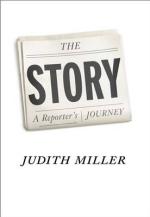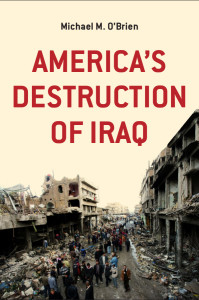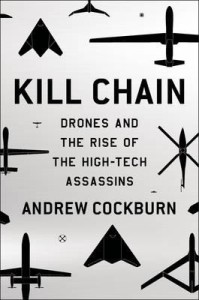The Story: A Reporter’s Journey is written by Judith Miller, star reporter for the New York Times, the world’s most powerful newspaper. She was the journalist most responsible for triggering the Iraq War with stories claiming the existence of Weapons of Mass Destruction. She got it wrong.
Citing White House officials and Iraqi defectors, Miller’s series of exclusive, front-page stories on Hussein and his alleged capacity to produce Weapons of Mass Destruction, WMD, was seen as justification for the Bush administration to invade Iraq in 2003. In 2005, after much of her reporting had already been discredited, Miller spent 85 days in jail for refusing to divulge the identity of a confidential source.
Much of Miller’s reporting was based on information provided by Ahmed Chalabi, who by the early 2000s was well-known not to be credible, and had in fact been convicted of massive bank fraud in Jordan.
Finding that the story was incorrect was a terrible moment for a newspaper of record such as The New York Times. Not only were the stories widely picked up in America, they were carried around the world.
In a piece on Politico by investigative journalist Raymond Bonner titled After 9/11 We Were All Judith Miller: Journalists Owe The American People An Apology, he writes:
If the sales of Judith Miller’s memoir are commensurate with the vituperation of the attacks on her, the royalties will mount. Her critics—they are many and loud—say the former New York Times reporter bears a responsibility for the Iraq war because the articles she wrote in the lead-up to the invasion advanced the Bush Administration’s contention that the country had weapons of mass destruction.
It’s easy to disparage Miller. Too easy. Censure her and we can sidestep looking at our own reporting, at broader disquieting questions about journalism since 9/11. As journalists, we all let our guard down in the aftermath of the worst terrorist attack on American soil. We abandoned some of the most important journalistic principles—speak truth to power; hold governments accountable; display healthy skepticism—at the base of the American flagpole. And I don’t just mean the royal we, the institutional we. I, too, am culpable.
Bonner says journalists reporting the “war on terror” emphasised national security over civil liberties. “Editors behaved like politicians—they worried about putting the resources in places to cover the next terrorist attack, while paying scant attention to lives ruined by the erosion of civil liberties. When law enforcement officials, whether in Washington or New York, said they were worried that terrorists might use helicopters or crop dusters, it was a front-page story. The horror stories of individuals falsely accused of being a terrorist were buried inside the paper, if reported at all.
He says that surely there was be a media course to be taught “about the media’s response to 9/11, how, as Eric Lichblau put it we got swept up in the patriotism, and what that did to reporting. Call it Journalism Post 9/11. The questions are many, troubling and knotty. How do you balance concerns about national security with protection of civil liberties? As the Senate report on torture makes clear, very little valuable intelligence came from the torture of suspected terrorists, but the harm to America’s moral standing in the world has been immense. If reporters had been more aggressive in reporting on secret prisons and torture, might they have been halted sooner, thus protecting America’s image, as well as many innocent lives—if we journalists still care about that. The course doesn’t start with Judith Miller, and it doesn’t end with Judith Miller.
In The Story: A Reporter’s Journey Miller writes about the mistakes she made on the existence in Iraq of weapons of mass destruction. She addresses the motives of some of her sources, including the notorious Iraqi Chalabi and the CIA.
Judy Miller grew up near the Nevada atomic proving ground. She got a job at the New York Times after a suit by women employees about discrimination at the paper and went on to cover national politics, head the paper’s bureau in Cairo, and serve as deputy editor in Paris and then deputy at the powerful Washington bureau. She reported on terrorism and the rise of fanatical Islam in the Middle East and on secret biological weapons plants and programs in Iraq, Iran, and Russia. She covered an administration traumatized by 9/11 and an anthrax attack three weeks later. Miller shared a Pulitzer for her reporting.





